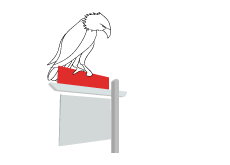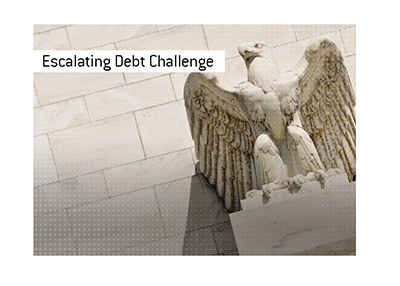US Homeownership Rate Hits 66.9% In Q2/2010
 On October 15th, 2002, President George W. Bush said:
On October 15th, 2002, President George W. Bush said:"We can put light where there's darkness, and hope where there's despondency in this country. And part of it is working together as a nation to encourage folks to own their own home."
These words helped to kick off one of the greatest asset bubbles that the world has ever seen, as well as setting the table for one of the biggest financial calamities that the world has ever witnessed.
In an effort to expand Republican appeal, George W. Bush strongly pushed the idea of home ownership in the United States. Owning your own home was part of the "American Dream", he said, and nobody should be excluded.
At the time that President George W. Bush made his speech in October of 2002, the homeownership rate in the United States was sitting at 68.0%. This number would end up hitting a peak of 69.2% in Q2/2004.
Lax lending standards and low interest rates in the United States would help to fuel an unprecedented real estate boom in the country from 2002-2006. Easy access to credit meant that no one was excluded from participating in the frenzied real estate market of those days - liar loans, stretch loans and teaser loans meant that you could buy a home, even if you had no business purchasing one in the first place. Who really cared if you could actually afford a home anyways? Real estate values in the country were on a parabolic upswing and everybody was making money - if you couldn't afford a home, then you could always sell it in a year for a 20-30% profit.
The rise of subprime mortgages in the country meant that people who were previously excluded from participating in the real estate market could now join in. The popularity of subprime mortgages would help to push the US real estate market to new heights (especially in states such as California, Florida and Nevada), but it would also end up setting off one of the worst financial disasters that the country has ever seen.
In 2007, the first signs of strain would begin to show. The economy was starting to slow down (the "Great Recession" would officially begin in December of 2007), and the subprime mortgage market was starting to crack. This would be the year that John Paulson would make his unbelievably big score betting against the US subprime mortgage market.
In 2008, the US real estate market would become completely unglued, which would end up resulting in the US government needing to provide unprecedented assistance in order to keep the entire global financial system afloat.
The easy credit was suddenly gone. Many Americans had been living well beyond their means, powered by HELOCs and a seemingly unending fountain of real estate profits. As real estate values tanked, many Americans found themselves "underwater" on their mortgages almost overnight.
As the economy ground to a halt in the country, suddenly many Americans didn't have the means to pay for their mortgages. Many of these people had no business being in such big mortgages in the first place, and they were some of the first people who would have their homes foreclosed upon.
As foreclosure rates rose in the country, homeownership rates fell. Many Americans who had been able to finally buy their first homes during the real estate boom of 2002-2006 found themselves renting once again.
After hitting a high of 69.2% in Q2/2004, the homeownership rate in the country clocked in at 66.9% in Q2/2010, which is the lowest level posted since 1999.
Homeownership rates in the West have been especially hard-hit over the past couple of years. In Q3/2006, the homeownership rate in the West was 65.3% - less than four years later, and this number has dropped to 61.4%. That's an unbelievable drop over a fairly short period of time, and just helps to illustrate how catastrophic this real estate downturn has been in terms of homeownership numbers.
How long until the country has a homeownership rate close to 70% once again? How low will the homeownership rate in the country end up sinking over the short term? Is there anything that can be done to reverse the trend?
Source: Census.gov
Filed under: The Economic Meltdown



